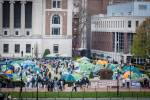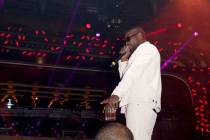‘Twelfth Night,’ ‘Comedy of Errors’ lead lineup at Utah Shakespeare Festival







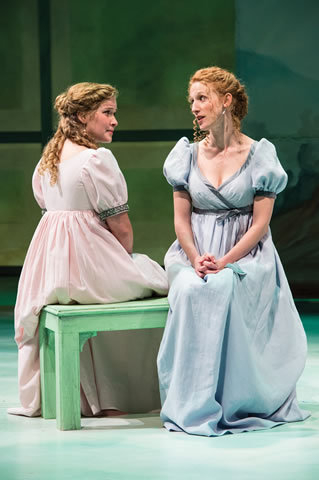

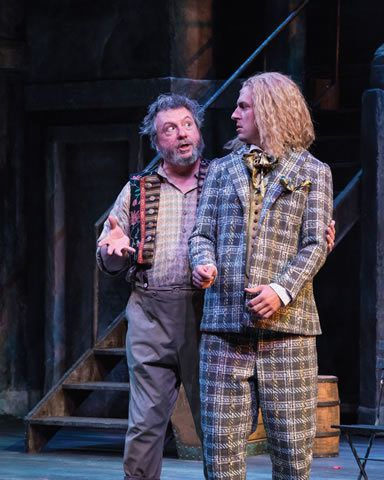
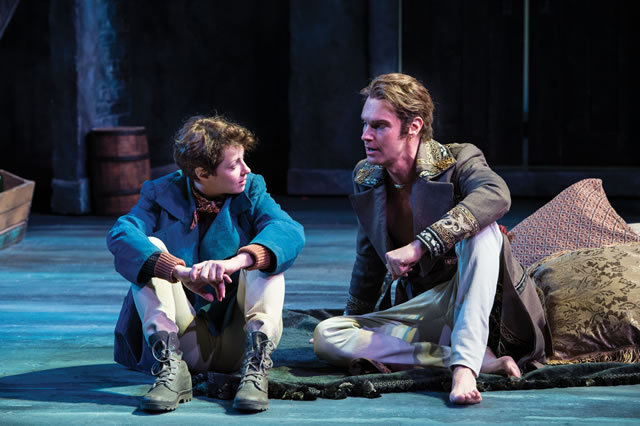



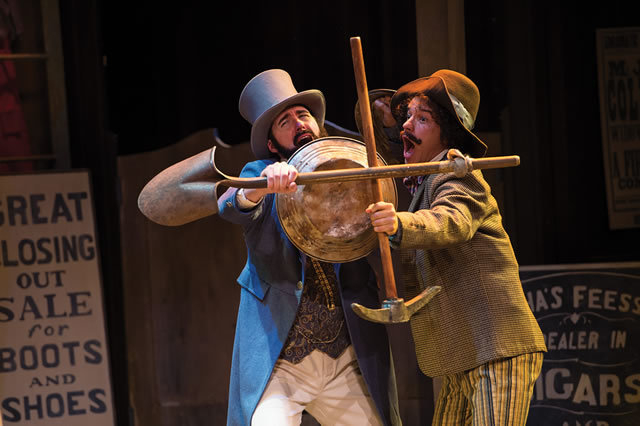
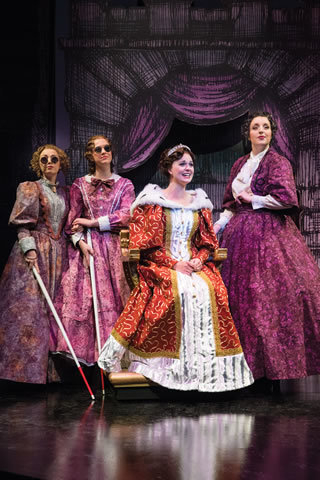


It’s dubbed the Utah Shakespeare Festival for good reason.
But William Shakespeare’s in good company during the festival’s 53rd annual summer season, which officially launched Monday in Cedar City, about three hours northeast of Las Vegas on Interstate 15. (Cedar City’s usually a 2½-hour drive from Southern Nevada, but because of highway construction — not to mention the one-hour shift to Mountain time — it’s best to allow extra travel time.)
Four of the Bard’s works — the sublime comedy of “Twelfth Night” (which runs through mid-October, spanning the festival’s summer and fall seasons), the slapstick “Comedy of Errors,” the dark comedy “Measure for Measure” and the stirring history “Henry IV Part One” anchor the summer lineup.
But tales from two other literary titans also turn up this summer.
The world premiere adaptation of Jane Austen’s “Sense and Sensibility” centers on two sisters’ very different approaches to life — and love — in 19th century England. And Broadway giant Stephen Sondheim’s Tony-winning musical “Into the Woods” focuses on beloved fairy tale characters in before — and after — they find their happily-ever-afters.
“I find Sondheim to be sort of the Shakespeare of our generation in the musical world,” says Brian Vaughn, the festival’s co-artistic director, who’s not only directing “Henry” but playing the pivotal role of the Baker in “Into the Woods.” (In a case of art-mirrors-life casting, Vaughn’s real-life spouse, Melinda Pfundstein, portrays the Baker’s Wife.)
“It’s a nice double,” Vaughn says of this season’s dual duties. “At first I was a little nervous, just about the workload,” he acknowledges, but “because of the nature of our repertory schedule and our mission of doing more than one thing,” working on both productions is “very rewarding, being on the inside of the acting company and the outside” as well.
“Into the Woods” — for which Sondheim won one of his record eight Tony Awards for best musical score — may not be as well known as, say, “Les Miserables,” which the festival produced two seasons ago.
But audiences joining the journey will see “a very, very rich, very timeless piece of theater,” director Jeremy Mann said.
It’ll also give festival audiences the chance to catch the original “Into the Woods” before the movie version (starring, among others, Meryl Streep as the resident Witch, Johnny Depp as the Wolf, Anna Kendrick as Cinderella and “Star Trek” captain Chris Pine as her charming prince) hits theaters Christmas Day, complete with inevitable plot changes. (Sondheim himself discussed some of them in a recent article in The New Yorker.)
Although it’s “a delightful farce of a fairy tale,” the musical also delves deeper into “the characters we relate to from childhood,” Mann says, noting that the major players share a key trait.
“They refuse to think” their enemies “ever could be right, but ‘Witches can be right, giants can be good,’ ” Mann says, quoting Sondheim’s lyrics. “The authors go beyond happily ever after” to explore “the consequences of getting what you want.”
Similar themes also crop up in other productions, including “Henry IV, Part One,” which continues the game of thrones that saw the title character wrest the English crown from “Richard II” in Cedar City last fall.
The third play in the Bard’s history cycle, which the festival is presenting in chronological order, “Henry” ranks as “definitely one of my favorite history plays, because it’s got everything,” says Vaughn, who’s played both Prince Hal and the rebellious Hotspur in previous productions. With “comedy, tragedy, romance, great battle scenes, it’s unlike any history play. At the heart of it, it doesn’t even feel like a history play.”
As an added bonus, “Henry IV” boasts one of Shakespeare’s greatest characters: the carousing Sir John Falstaff, who’ll be portrayed — this year and next, in “Henry IV, Part Two” — by festival favorite Henry Woronicz, a most memorable Prospero in last season’s “The Tempest.”
But he’s hardly the only “Henry” holdover. Larry Bull, who stole “Richard II’s” crown as Henry Bullingbrook last season, continues this season and next as “Henry IV.” And Sam Ashdown, cast as Henry’s hard-partying heir Prince Hal, will return for “Henry IV Part Two” — and when he takes over the throne as “Henry V” two years hence.
The repeat casting gives a little bit of continuity to the story, notes R. Scott Phillips, the festival’s executive director, while making sure the productions have all the right Shakespearean elements.
Some of them have more Shakespearean elements than others, however.
This season, “The Comedy of Errors” gets a major contextual shift with a production that transplants the action to the 1849 California Gold Rush.
“Several people call every day to ask, ‘They’re not changing Shakespeare, are they?’ ” notes director Brad Carroll. “That’s not the case at all.”
When Vaughn and co-artistic director David Ivers asked Carroll — the festival’s musical specialist — to direct, “all they said was, ‘We would like you to think outside the box,’ ” Carroll recalls. And once he came up with the Gold Rush concept, “the more I thought about it, the funnier it got.”
Well aware he’s bucking tradition — especially in the festival’s outdoor Adams Shakespearean Theatre, which resembles the Bard’s own Globe — Carroll hopes audiences “have the courage to come see it and not decide it’s wrong before they see it.”
In the festival’s indoor Randall L. Jones Theatre, “Twelfth Night” also boasts an updated setting, but one that puts “front and center the sense of loss — and the sense of found” the play conveys, director Ivers explains, as a shipwreck’s aftermath prompts a series of masquerades, mistaken identities and seemingly impossible romances in the mythical realm of Illyria.
Director Ivers knows Illyria well; he’s acted in “Twelfth Night” three times, but has never directed what he describes as one of “the top four of (Shakespeare’s) genius plays — and not just his comedies.”
In part, that’s because “it’s just like an onion — you can continue to peel back and peel back and peel back,” Ivers says. (Far from coincidentally, Shakespeare was writing “Hamlet,” another of his “top four genius plays,” around the same time.)
Throughout, “there’s such robustness and such yearning,” Ivers says, citing “Twelfth Night’s” focus on “the issue of identity” — and “how brave you are when you have a mask in front of you.”
Having the courage of your convictions also figures in the Bard’s dark (and rarely produced) “Measure for Measure,” which “has so many great, relevant, modern themes,” says director Laura Gordon, citing its exploration of “power and corruption and people in power acting hypocritically.”
The latter describes the powerful Angelo, who’s determined to crack down on sex in the city (1604 Vienna) and agrees to spare Claudio, who’s about to be executed for impregnating his betrothed — but only if the accused’s virtuous sister Isabella, about to take her vows as a nun, will give up her virginity. To Angelo.
Beyond the political and philosophical conflicts, however, Gordon says she’s also intrigued by the way the play’s central characters have “all been running away from something,” and must “turn around and face what they’ve been running from.”
As for the challenging nature of “Measure for Measure,” the director responds to its “wonderful mix of humanity” — and the complications that follow.
“It’s hard to tie it up with a pretty ribbon at the end,” she acknowledges, “and I love that.”
The festival’s world premiere “Sense and Sensibility,” co-adapter and director Joseph Hanreddy says, showcases equally contrary characters, demonstrating author Austen’s ability to write about love and its complications while exploring the contradictions of the behavior of her characters, who do and think things and are proved wrong.
“Sense and Sensibility” is the second Austen classic Hanreddy and collaborator J.R. Sullivan have adapted for the stage; their first, “Pride and Prejudice,” played Cedar City in 2010.
In adapting Austen, “one of the difficulties is to get past” the notion that “anything you do is just going to be defacing a masterpiece,” Hanreddy says. He and Sullivan got around that by pretending that “Austen had always wanted to write a play and turned over 700 pages of notes,” he says. “And the notes are so good.”
In “Sense and Sensibility,” actor Quinn Mattfeld plays the shy yet charming Edward Ferrars — the total opposite of his “Twelfth Night” role as the vain, posturing (and hilarious) dimwit Sir Andrew Aguecheek.
“It’s wonderful — you get to wake up and go, ‘What’s the energy today?’ ” Mattfeld says of the contrasting roles. “What version of yourself do you get to play today?”
Such shifts exemplify the festival’s impact on performers and audiences alike, he points out.
“The festival atmosphere is so great — you can see six shows and it’s invigorating and enlightening,” says Mattfeld, who’s marking his fifth year as a company member. (Last year’s roles included “Peter and the Starcatcher’s” swashbuckling Black Stache.)
Beyond the six shows: a nightly Greenshow, plus a variety of seminars where audiences discuss and debate the plays.
“It’s like filling up the spiritual tank,” Mattfeld says of the festival experience. “It hearkens back to what theater does. It transforms.”
Contact reporter Carol Cling at ccling@reviewjournal.com or 702-383-0272.





